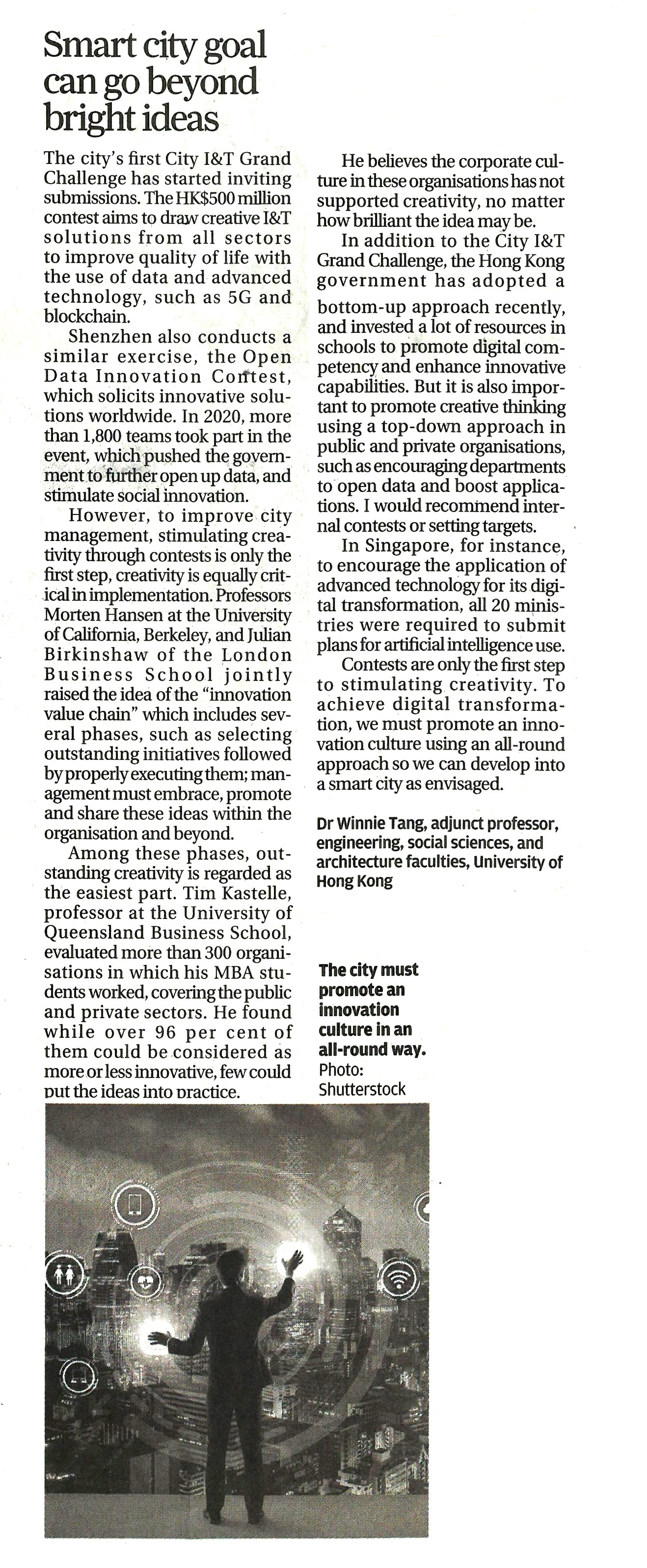網上版請按此

Smart city goal can go beyond bright ideas
The city's first City I&T Grand Challenge has started inviting submissions. The HK$500 million contest aims to draw creative I&T solutions from all sectors to improve quality of life with the use of data and advanced technology, such as 5G and blockchain.
Shenzhen also conducts a similar exercise, the Open Data Innovation Contest, which solicits innovative solutions worldwide. In 2020,more than1,800 teams took part in the event, which pushed the government to further open up data, and stimulate social innovation.
However, to improve city management, stimulating creativity through contests is only the first step, creativity is equally critical in implementation. Professors Morten Hansen at the University of California, Berkeley, and Julian Birkinshaw of the London Business School jointly raised the idea of the "innovation value chain" which includes several phases, such as selecting outstanding initiatives followed by properly executing them; management must embrace, promote and share these ideas within the organisation and beyond.
Among these phases, outstanding creativity is regarded as the easiest part. Tim Kastelle, professor at the University of Queensland Business School, evaluated more than 300 organisations in which his MBA students worked, covering the public and private sectors. He found while over 96 per cent of them could be considered as more or less innovative, few could put the ideas into practice.
He believes the corporate culture in these organisations has not supported creativity, no matter how brilliant the idea may be.
In addition to the City I&T Grand Challenge, the Hong Kong government has adopted a bottom-up approach recently, and invested a lot of resources in schools to promote digital competency and enhance innovative capabilities. But it is also important to promote creative thinking using a top-down approach in public and private organisations, such as encouraging departments to open data and boost applications. I would recommend internal contests or setting targets.
In Singapore, for instance, to encourage the application of advanced technology for its digital transformation, all 20 ministries were required to submit plans for artificial intelligence use.
Contests are only the first step to stimulating creativity. To achieve digital transformation, we must promote an innovation culture using an all-round approach so we can develop into a smart city as envisaged.
Dr. Winnie Tang
Adjunct Professor, Department of Computer Science, Faculty of Engineering; Department of Geography, Faculty of Social Sciences; and Faculty of Architecture, The University of Hong Kong